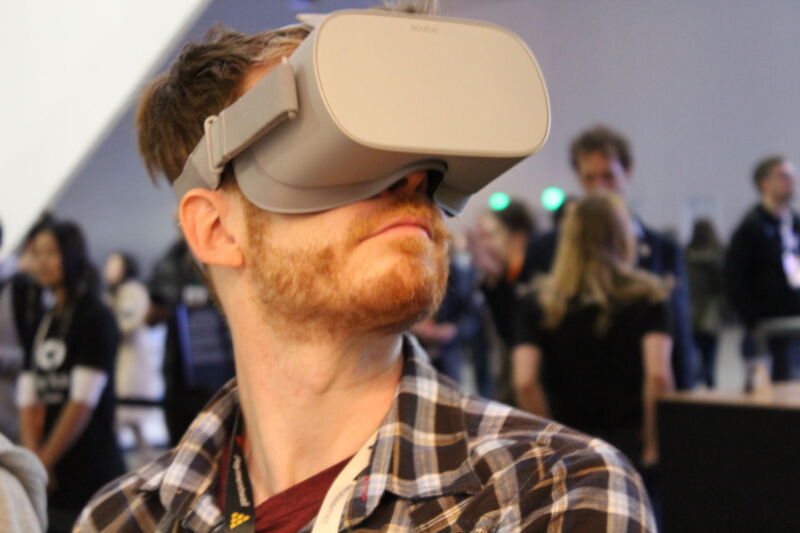
Oculus may have officially discontinued its low-end Oculus Go headset last year, but the company has one more "official" update to help future-proof the hardware. On Thursday, Oculus released an unlocked build of the Oculus Go operating system, allowing for "full root access" on more than 2 million existing units.
Oculus "Consulting CTO" (and former id Software co-founder) John Carmack announced his plans for this update last month, saying it was something he had "been pushing on for years." In part, the unlocking is an attempt to guarantee that Go hardware will continue to be fully functional well into the future, allowing for "a randomly discovered shrink wrapped headset twenty years from now [to] be able to update to the final software version, long after over-the-air update servers have been shut down," Carmack wrote.
Before that, though, the update will allow tinkerers to "repurpose the hardware for more things today," as Carmack puts it. Go hardware running the unlocked OS will no longer check for a Facebook signature at the kernel level, meaning developers can create new versions of low-level system software for the entire Android-based OS. That could allow for custom versions of low-level features like the app launcher and the removal of otherwise locked system apps. The update also allows for easy sideloading of apps outside of Go's store interface, though this was already possible on older OS versions.
Welcome to the afterlife
Initially released in 2018, the Go was Oculus' first fully standalone headset, and it was an important evolution of phone-based VR solutions like Samsung's Gear VR (which Oculus also worked on). While the Go was well-built and relatively full-featured given its $199 starting price, the hardware was limited by its lack of full positional tracking for the headset and controller. It started to look dated when the more expensive Oculus Quest was released in 2019.
Still, the Go served as a relatively cheap entry point for basic VR use cases and can still serve that purpose today. Used units can be found for as low as $100 on eBay, and now users can be assured they'll have full access to those legacy units, with the possibility of new homebrew features and support in the future.
-
Go, frontal view.Sam Machkovech
-
Go with its power indicator on. The volume buttons are easy to access and press in the middle of any action.
-
The back of Go's box.
-
Lift the top off to expose this nicely arranged set of parts.
-
The thin, black box opens up to expose these accessories, including a "glasses spacer."
-
What is Oculus Go? Let the instruction manual tell you.
-
Instructions for how to replace controller batteries, how to add the glasses spacer, and other general setup suggestions. Worth noting: I never needed to install the glasses spacer while wearing my own bulky glasses.
-
Zoom on the controller's face, which includes a serviceable, clickable trackpad.Sam Machkovech
-
A single trigger.
-
The controller explodes to expose a single AA-battery slot.
-
How it fits in the author's hand.
-
The strap looks and feels a little flimsy, but it does the job.
-
The retail version of Go comes with warning stickers attached to the lens. Pretty good way to make sure users notice them.
-
The foam lining is a little firmer than I'd like, but it's serviceable for a discount device.
-
Micro-USB for charging.
There's no reason that continued online support for these consoles should be at the whim of a company that obviously has no financial interest in them anymore. Nintendo and other console and game makers should take steps to release versions of their server code that allow players to run their own online infrastructure after the corporate servers are no longer available.
As a practical matter, though, this can apparently be easier said than done. "I hope this is a precedent for when headsets go unsupported in the future," Carmack tweeted last month. "But damn, getting all the necessary permissions for this involved SO much more effort than you would expect."
reader comments
76